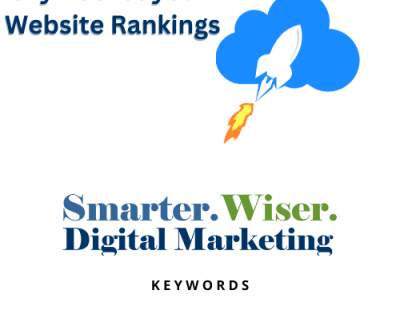Getting Your Website Data Into LLMs: A Practical, Safe Playbook
- October 12, 2025
- Search Engine Optimising Service
By Smarter Wiser Digital Advertising and Marketing • Updated 12 Oct 2025
Table of Contents
ToggleAI assistants and large language models (LLMs) are now a default research step for buyers. The question isn’t just “can search engines index my site?”—it’s “can LLMs understand, trust and surface my content?” Below is a practical framework you can implement in days to make your site LLM-ready without sacrificing control, attribution or conversions.
Why “LLM-ready” Content Matters
- Visibility: Buyers ask assistants for comparisons, prices and local providers. If your facts aren’t machine-readable, you won’t be suggested.
- Trust: LLMs favour clean structure, consistent metadata and verifiable sources.
- Control: With the right signals you can shape what gets used—and how it’s attributed.
The Four Lanes LLMs Use to Learn From Your Site
1) Crawlable, Semantic Web Pages
- Clean HTML with one H1, logical H2–H3, descriptive alt text and meaningful anchors.
- Fast and accessible: pass Core Web Vitals; render primary content server-side.
- Consolidate duplicates behind a single canonical URL.
2) Structured Data (Schema.org)
Add machine context with JSON-LD:
- Organization/LocalBusiness (identity, NAP, sameAs).
- Service/Product (descriptions, price ranges, service areas).
- Article/BlogPosting (author, dates, headline, images).
- FAQPage/HowTo where genuinely helpful.
3) Sitemaps, Feeds & “Facts” Files
- XML sitemaps split by type (posts, services, locations) with lastmod.
- RSS/Atom for “latest” monitoring.
- Optional public
/llm-info.jsonsummarising canonicals, licensing and contact.
4) APIs & Data Endpoints (Advanced)
For product catalogues or frequently changing data, serve a small, documented JSON API with timestamps and canonicals.
Do / Don’t for LLM Access
Do
- Allow crawling of public pages in robots.txt.
- Use consistent meta robots and canonicals.
- Add clear Published/Updated dates and author info.
- Keep a concise facts block on key pages (pricing band, coverage, response time).
Don’t
- Hide key facts in images/PDFs with no HTML equivalent.
- Publish repetitive boilerplate location pages at scale.
- Mix conflicting index/canonical signals.
- Expose sensitive or private client data.
Information Architecture LLMs Understand
Hub → Spoke model:
- Hubs: /services/, /industries/, /locations/, /resources/
- Spokes: service pages, industry use-cases, city pages, deep tutorials—each linking back to hubs and across siblings.
- Proof: case studies, testimonials and media with schema.
Add a Tiny “LLM Facts” File
Host at /llm-info.json to signal canonicals, contact and licensing:
{
"brand": "Smarter Wiser Digital Advertising and Marketing",
"domain": "https://smarterwiser.co.uk/",
"about": "SEO, PPC, and content programs for UK service businesses.",
"canonical_resources": [
"https://smarterwiser.co.uk/about/",
"https://smarterwiser.co.uk/services/seo/",
"https://smarterwiser.co.uk/services/ppc/",
"https://smarterwiser.co.uk/blog/"
],
"contact": {"url": "https://smarterwiser.co.uk/contact/"},
"licensing": "Public page content may be quoted with attribution and link. Logos and private client assets excluded.",
"last_updated": "2025-10-12"
}
Implementation Checklist (One Afternoon Sprint)
- Validate robots.txt and split XML sitemaps by type with lastmod.
- Add/refresh Organization & LocalBusiness schema sitewide.
- Roll out Article + FAQ schema on your top posts.
- Create
/llm-info.jsonwith canonicals and licensing. - Standardise service “facts” blocks (pricing band, coverage, response time).
- Ensure primary content is server-rendered; keep JS progressive.
- Add author boxes and an “Updated” policy.
- Interlink hubs ↔ spokes; surface relevant case studies.
- Improve Core Web Vitals; compress & lazy-load images.
- Publish a short “How we use AI” page for transparency.
Related Smarter Wiser resources
- SEO Services — technical, on-page and content systems.
- PPC Management — profit-first Google Ads.
- Blog — playbooks and case studies.
- About — who we are & why we’re trusted.
Make Your Site LLM-Ready in Days
We’ll audit structure, schema and signals—then implement a clean, scalable setup.
FAQs
Do I need an API for LLMs?
No. Start with clean HTML, structured data and sitemaps. APIs help for fast-changing inventories or specs but aren’t mandatory.
Will FAQ schema guarantee AI visibility?
Schema improves machine understanding—not rankings by itself. Authority, freshness and clarity still decide outcomes.
How do I prevent “hallucinations” about my brand?
Publish a consistent facts set across About/Services, include dates, link to proof (case studies), and expose a small /llm-info.json.
Should every page have schema?
Prioritise high-intent pages first—services, pricing, flagship guides—then expand and maintain.
Can I block LLM use of my content?
You can restrict via robots/meta and licensing notes, but enforcement varies. Publish public facts you want used and keep sensitive info private.
About us and this blog
We are a digital marketing company with a focus on helping our customers achieve great results across several key areas.
Request a free quote
We offer professional SEO services that help websites increase their organic search score drastically in order to compete for the highest rankings even when it comes to highly competitive keywords.
We offer a FREE Website Audit. No Charge, No Catch, simply add your website, the email address to send report. We will send you a website audit report highlighting any website issues, broken links, alt tags missing, duplicate titles etc along with a Google Analysis of your content.
Recent Posts
All Website Tags
- Advanced SEO Analytics
- Advertising
- agentic ai
- AI and Machine Learning in SEO
- Ai Native Blueprint
- AI Search & GEO
- Algorithm Updates and SEO
- Algorithm Updates and SEO News
- Alt Text (Alternative Text)
- Analytics and Insights
- Anchor Text
- Audit
- Authority
- Automations
- Backlink Monitoring and Management
- Backlinks
- Black Hat SEO
- Brand Awareness
- Business Ranking for Trades
- Canonical URLs
- citations
- Content Creation Chronicles
- Content Marketing
- Content Marketing Corner
- Content Marketing for SEO
- copywriting
- CTR (Click-Through Rate)
- Digital Authority
- Digital Diagnostic
- Digital Diagnostic for SEO
- Digital Health Assessment
- Digital Marketing
- Digital Marketing Trends
- Domain Authority DA
- Duplication
- E-Commerce SEO
- E-E-A-T
- Email Marketing Mastery
- Entity-Level Protection
- External Linking
- GEO Generative Engine Optimising
- Google Core Update
- Google My Business GMB
- Heading Tags (H1, H2, H3, etc)
- Healthcare SEO Strategies
- Indexing
- Internal Linking
- Internal Linking Strategies
- International SEO Strategies
- Keyword Analysis and Optimisation
- Keyword Research and Analysis
- Keywords
- Large Language Models
- Link Building
- Link Building for SEO
- Link Building Strategies
- Link Building Techniques
- Link Building Tools and Tips
- LLM
- Local SEO
- Local SEO Spotlight
- Local SEO Strategies
- Local SEO Strategy
- Market Research
- Marketing
- Marketing Mix
- Meta Tags (Title, Description)
- Mobile SEO
- Off-Page Optimisation
- Off-Page SEO
- On-page SEO
- Online Audit Insights
- Online Audit Insights for SEO
- Openai
- Optimise Your SEO
- Optimise Your Website
- Organic Traffic
- Page Authority
- Page Load Speed
- Paid Search (PPC)
- Ranking
- Reputation Management and Online Branding
- Return on Investment (ROI)
- Rich Snippets
- schema
- Search Engine Optimising Service
- Search Ranking Analysis
- semantics
- SEO
- SEO Analytics and Reporting
- SEO Diagnostic Lab
- SEO Evaluation Toolkit
- SEO for Beauty
- SEO for Blogs and Content Platforms
- SEO for Hair Salons
- SEO for Spas
- SEO for Startups
- SEO for WordPress Websites
- SEO Health Assessment
- SEO Health Check
- SEO Performance Checkup
- SEO Success Secrets
- SERP
- Site Performance Analysis
- Social Media Integration for SEO
- Social Media Strategies Unveiled
- Target Audience
- Technical SEO
- Technical SEO Demystified
- Video SEO for YouTube
- Web Presence Checkup
- Website Health Check
- White Hat SEO







